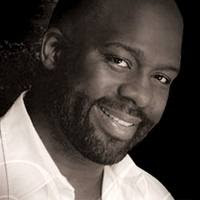African American Fiction
Coming in 2014
 |
| April 29, 2014 |

KIRKUS REVIEW
Voodoo, faith and racism
converge in an East Texas town—particularly within the troubled titular
heroine—in this bracing debut novel.
When we first meet Ruby Bell, she’s a symbol of local disgrace: It’s 1974, and a decade earlier she returned to her hometown of Liberty seemingly gone crazy. The local rumor mill (mostly centered around the church) ponders a host of reasons: the lynching of her aunt; her being forced into prostitution as a child; a stint in New York, where she was the rare black woman in a white highbrow literary milieu. The only person who doesn't keep his distance is Ephram, a middle-aged man who braves the town’s mockery and the mad squalor of Ruby’s home to reconnect with her. Bond presents Ruby as a symbol of a century’s worth of abuse toward African-Americans; as one local puts it, “Hell, ain’t nothing strange when Colored go crazy. Strange is when we don’t.” The echoes of Alice Walker and Toni Morrison are clear, but Bond is an accomplished enough writer to work in a variety of modes with skill and insight. She conjures Ruby’s fun-house-mirror mind with harrowing visions of voodoo ceremonies and the ghosts of dead children, yet she also delivers plainspoken descriptions of young Ruby’s experience in a brothel, surrounded by horrid men. And Bond can be sharply funny, satirizing the high-toned sanctimony of Liberty’s churchgoers (especially Ephram’s sister Celia) that’s really a cover for hypocritical pride and fear. Some of the more intense passages of the novel lapse into purple prose, and the horror of Ruby’s experience (which intensifies as the novel moves along) makes her closing redemption feel somewhat pat. But the force of Ruby’s character, and Bond’s capacity to describe it, is undeniable.
A very strong first novel that blends tough realism with the appealing strangeness of a fever dream.
When we first meet Ruby Bell, she’s a symbol of local disgrace: It’s 1974, and a decade earlier she returned to her hometown of Liberty seemingly gone crazy. The local rumor mill (mostly centered around the church) ponders a host of reasons: the lynching of her aunt; her being forced into prostitution as a child; a stint in New York, where she was the rare black woman in a white highbrow literary milieu. The only person who doesn't keep his distance is Ephram, a middle-aged man who braves the town’s mockery and the mad squalor of Ruby’s home to reconnect with her. Bond presents Ruby as a symbol of a century’s worth of abuse toward African-Americans; as one local puts it, “Hell, ain’t nothing strange when Colored go crazy. Strange is when we don’t.” The echoes of Alice Walker and Toni Morrison are clear, but Bond is an accomplished enough writer to work in a variety of modes with skill and insight. She conjures Ruby’s fun-house-mirror mind with harrowing visions of voodoo ceremonies and the ghosts of dead children, yet she also delivers plainspoken descriptions of young Ruby’s experience in a brothel, surrounded by horrid men. And Bond can be sharply funny, satirizing the high-toned sanctimony of Liberty’s churchgoers (especially Ephram’s sister Celia) that’s really a cover for hypocritical pride and fear. Some of the more intense passages of the novel lapse into purple prose, and the horror of Ruby’s experience (which intensifies as the novel moves along) makes her closing redemption feel somewhat pat. But the force of Ruby’s character, and Bond’s capacity to describe it, is undeniable.
A very strong first novel that blends tough realism with the appealing strangeness of a fever dream.
This interracial, inter-generational saga of love, land and loss is told
from the disparate perspectives of Ruth Thatcher, who is Black, and
Jonas Thatcher, who is White, and spans nearly a century. The story
begins in 1917 when Ruth and Jonas are farm children and ends in 2005 as
their descendants struggle to unravel and understand the legacies of
this star-crossed pair. During the course of their two lifetimes, Ruth
and Jonas– and their respective families– have evolved and ultimately
have prospered, but it is left for their descendants to come to grips
with the long-unacknowledged truth that the two families are actually
one.



Comments
Thanks for this post and for including my new novel in it. I have to mention that the novel is a departure for me. It's an epic fantasy, pretty far away from the African-American realm of my early novels. But I still hope black readers will give it a look. It's my attempt at writing a big, bold, harsh and realistic "fantasy" world that also happens to represent real human cultural diversity. We'll see how it goes.
Another book I'd like to bring to your attention is Ravi Howard's Like Trees Walking. I read an early copy and it's a very well-written book about one the last recorded lynchings on American soil. Keep an eye out for it.
Best,
David.
I look forward to reading your newest novel "Acacia" and will read it without prejudice. And, thank you for the book recommendation by Ravi Howard. I will be looking for that as well.
Good Luck!